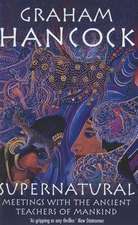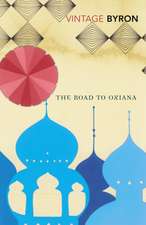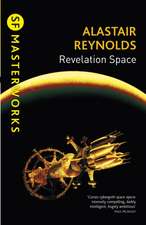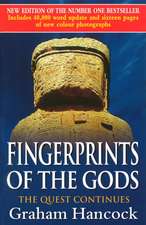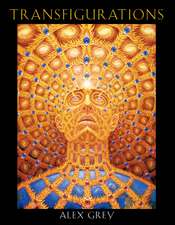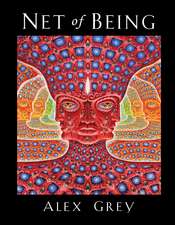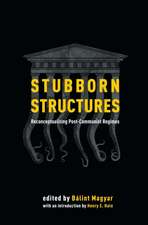The Road to Wigan Pier
Autor George Orwellen Limba Engleză Paperback – 2 feb 2020
In Wigan I stayed for a while with a miner who was suffering from nystagmus. He could see across the room but not much further. He had been drawing compensation of twenty-nine shillings a week for the past nine months, but the colliery company were now talking of putting him on 'partial compensation' of fourteen shillings a week. It all depended on whether the doctor passed him as fit for light work 'on top'. Even if the doctor did pass him there would, needless to say, be no light work available, but he could draw the dole and the company would have saved itself fifteen shillings a week. Watching this man go to the colliery to draw his compensation, I was struck by the profound differences that are still made by status. Here was a man who had been half blinded in one of the most useful of all jobs and was drawing a pension to which he had a perfect right, if anybody has a right to anything. Yet he could not, so to speak, demand this pension - he could not, for instance, draw it when and how he wanted it. He had to go to the colliery once a week at a time named by the company, and when he got there he was kept waiting about for hours in the cold wind. For all I know he was also expected to touch his cap and show gratitude to whoever paid him; at any rate he had to waste an afternoon and spend sixpence in bus fares. It is very different for a member of the bourgeoisie, even such a down-at-heel member as I am. Even when I am on the verge of starvation I have certain rights attaching to my bourgeois status. I do not earn much more than a miner earns, but I do at least get it paid into my bank in a gentle-manly manner and can draw it out when I choose. And even when my account is exhausted the bank people are passably polite. This business of petty inconvenience and indignity, of being kept waiting about, of having to do everything at other people's convenience, is inherent in working-class life. A thousand influences constantly press a working man down into a passive role. He does not act, he is acted upon. He feels himself the slave of mysterious authority and has a firm conviction that 'they' will never allow him to do this, that, and the other. Once when I was hop-picking I asked the sweated pickers (they earn something under sixpence an hour) why they did not form a union. I was told immediately that 'they' would never allow it. Who were 'they'? I asked. Nobody seemed to know, but evidently 'they' were omnipotent.
| Toate formatele și edițiile | Preț | Express |
|---|---|---|
| Paperback (11) | 46.78 lei 22-33 zile | +15.37 lei 7-13 zile |
| Penguin Books – 2014 | 46.78 lei 22-33 zile | +15.37 lei 7-13 zile |
| OUP OXFORD – 7 ian 2021 | 47.69 lei 11-16 zile | +23.03 lei 7-13 zile |
| Flame Tree Publishing – 26 sep 2022 | 47.79 lei 3-5 săpt. | +13.60 lei 7-13 zile |
| Penguin Books – 25 apr 2001 | 48.46 lei 22-33 zile | +18.19 lei 7-13 zile |
| ALMA BOOKS – aug 2024 | 51.56 lei 3-5 săpt. | +10.04 lei 7-13 zile |
| CREATESPACE – | 69.33 lei 3-5 săpt. | |
| HarperCollins Publishers – 17 oct 1972 | 94.83 lei 3-5 săpt. | |
| TingleBooks – 2 sep 2020 | 110.05 lei 6-8 săpt. | |
| Delhi Open Books – 2 feb 2020 | 122.66 lei 6-8 săpt. | |
| Prabhat Prakashan – 17 iun 2017 | 144.07 lei 6-8 săpt. | |
| Vintage Publishing – 29 aug 2018 | 199.70 lei 6-8 săpt. | |
| Hardback (3) | 46.50 lei 3-5 săpt. | +29.75 lei 7-13 zile |
| Pan Macmillan – 3 mar 2021 | 46.50 lei 3-5 săpt. | +29.75 lei 7-13 zile |
| Benediction Classics – 16 noi 2010 | 176.12 lei 39-44 zile | |
| Lulu – 31 mai 2008 | 180.45 lei 6-8 săpt. |
Preț: 122.66 lei
Nou
23.47€ • 24.35$ • 19.57£
Carte tipărită la comandă
Livrare economică 27 martie-10 aprilie
Specificații
ISBN-10: 9389847206
Pagini: 226
Dimensiuni: 127 x 203 x 13 mm
Greutate: 0.25 kg
Editura: Delhi Open Books
Notă biografică
Débora Tavares (Introduction) has a master’s degree in George Orwell’s 1984 and a PhD degree about Orwell’s Keep the Aspidistra Flying and The Road to Wigan Pier, both from the University of São Paulo. She researches and teaches connections between literature and society, as well as Orwell’s writings. She has published a postface for a Brazilian edition of 1984, together with video classes for 1984 and Animal Farm.
Recenzii
Descriere
A searing account of George Orwell's observations of working-class life in the bleak industrial heartlands of Yorkshire and Lancashire in the 1930s, The Road to Wigan Pier is a brilliant and bitter polemic that has lost none of its political impact over time. His graphically unforgettable descriptions of social injustice, cramped slum housing, dangerous mining conditions, squalor, hunger and growing unemployment are written with unblinking honesty, fury and great humanity. It crystallized the ideas that would be found in Orwell's later works and novels, and remains a powerful portrait of poverty, injustice and class divisions in Britain.
Published with an introduction by Richard Hoggart in Penguin Modern Classics.
'It is easy to see why the book created and still creates so sharp an impact ... exceptional immediacy, freshness and vigour, opinionated and bold ... Above all, it is a study of poverty and, behind that, of the strength of class-divisions'
Richard Hoggart



